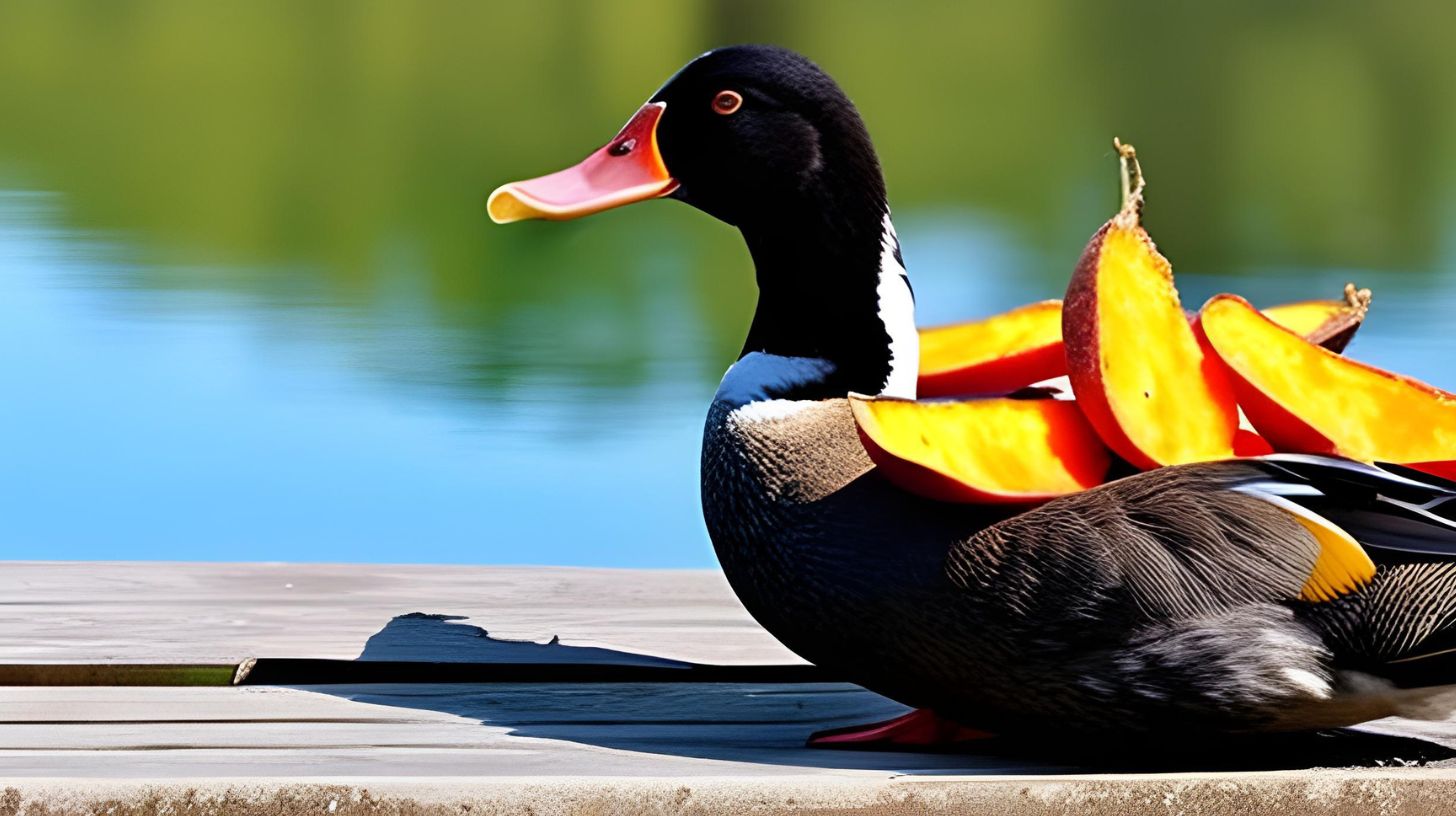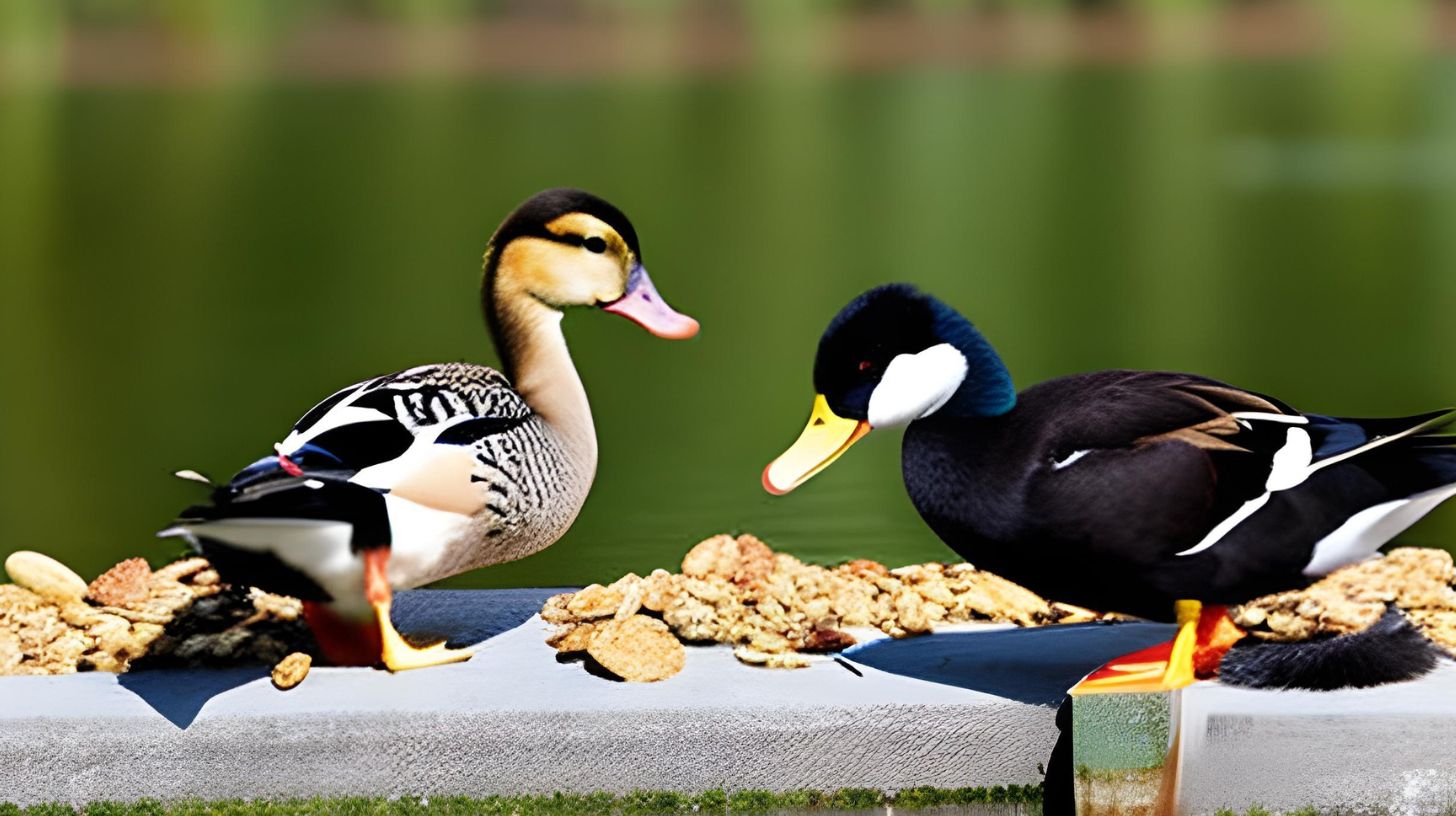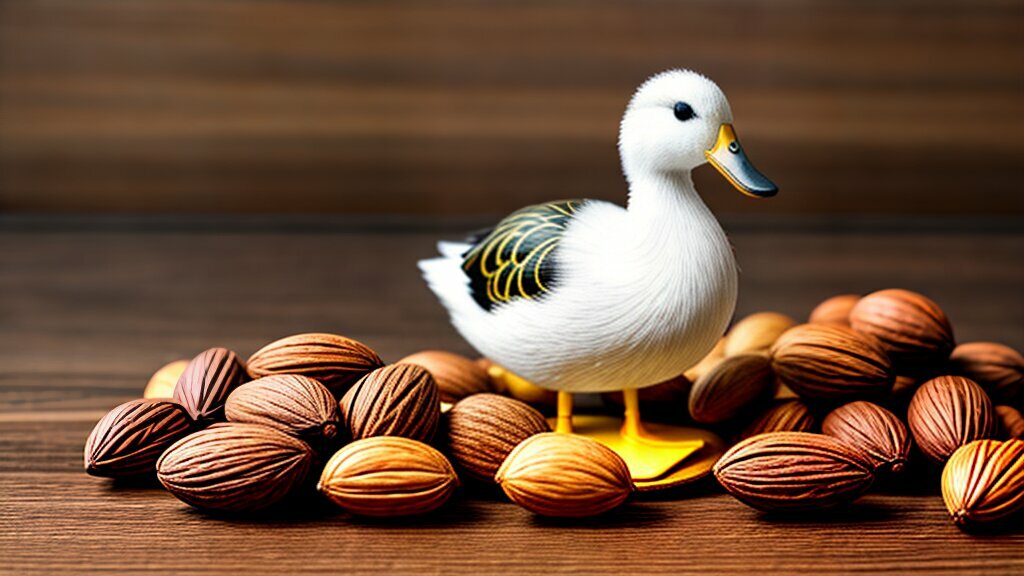Can Ducks Eat Sweet Potato Peels?

Table of content:
Ducks are fun, quirky little birds that can make great pets. With their cute waddles and quacks, it’s easy to fall in love with ducks! As a responsible duck owner, you want to make sure you’re feeding your feathered friends a healthy diet. One question that often comes up is whether ducks can eat sweet potato peels. Let’s take a deeper look at the answer.
Ducks as Pets
There are over 120 different breeds of ducks worldwide! Ducks come in a huge range of sizes, shapes, colors and personalities. Some of the most popular pet duck breeds include:
- Mallard ducks – The wild duck you’re probably most familiar with from ponds and rivers. Mallards can be domesticated but tend to fly away more than other breeds.
- Pekin ducks – The quintessential white “Aflac” duck. Pekins are calm, intelligent, and make great pets.
- Muscovy ducks – Large, distinctive ducks with warty red faces. Muscovys are less noisy than other ducks.
- Call ducks – Small and cute miniature ducks that make popular pets.
- Cayuga ducks – Beautiful black ducks that shimmer green and purple in sunlight.
- Swedish ducks – A cute smaller duck known for their charming personalities.
Ducks have unique personalities, intelligence and emotional ranges. When happy, ducks are known to wag their tails and make content little noises. Proper care and feeding are important for pet duck health and happiness.
The Diets and Digestion of Ducks
In the wild, ducks are omnivores. They eat a mix of plants, seeds, insects and small amphibians or fish. As pets, domesticated ducks have slightly different dietary needs.
Pekin and other domestic ducks do best on a balanced diet of:
- Pellets or crumble feed formulated especially for ducks
- Chopped greens like kale, spinach and swiss chard
- Vegetable scraps like carrots, potatoes, beans, celery
- Limited fruits like berries and melon
- Insects like mealworms or crickets
- Grit to help digest their food
Ducks do not have teeth! They use their broad bills to scoop and filter food. Their digestive systems are geared towards plant-based foods high in fiber. Ducks need grit like sand or coarse oyster shells to grind up food in their gizzards. Without grit, ducks have a hard time breaking down foods.
Ducks are messy eaters and drinkers. They love splashing in their water bowl! Since they are so active at chow time, floating or sinking food works best. Keeping their food bin and water clean is important.
Can Ducks Eat Sweet Potatoes and Their Skins?
Now that we’ve covered duck basics, let’s dive into our original question – can ducks eat sweet potato peels?
Sweet potatoes are root vegetables packed with nutrients like:
- Vitamin A – Essential for duck vision, immune health and organ function
- Vitamin C – An antioxidant that aids growth and tissue health
- Potassium – Helps nervous system and waste elimination
- Fiber – Aids digestion and gut health
Both the sweet potato flesh and skin are very healthy for humans. But what about ducks?
Thankfully, sweet potatoes are safe for ducks to eat. The vitamins, minerals and fiber can provide great nutrition. Sweet potatoes should be cooked soft so they are easier for ducks to digest. Some tips for serving sweet potatoes:
- Chop boiled or roasted sweet potato into bite sized pieces.
- Blend boiled sweet potato with a little water into an easy mash.
- Mix in chopped greens, carrot or other veggies.
What About Those Skins?
Sweet potato skins contain even more fiber than the flesh – perfect for your duck’s digestion. The skins also contain antioxidants and nutrients. In humans, much of a sweet potato’s vitamin C and potassium are found in the skin.
So yes, ducks can safely eat sweet potato skins! Just like the flesh, the skins should be thoroughly cooked to soften them up. Raw skins are likely to be tough for a duck to swallow and digest.
To prepare sweet potato skins for your duck:
- Boil or roast whole sweet potatoes until quite soft. The skins should peel off easily.
- Chop the skins into bite-sized bits your duck can swallow comfortably.
- Mix the chopped skins into their food, or offer them on their own.
Feed sweet potato skins in moderation along with your duck’s normal diet. While healthy, too much of any one food can cause issues.
Benefits and Risks of Feeding Ducks Sweet Potatoes and Skins
Let’s do a quick rundown of the pros and cons of adding this veggie to your duck’s menu:
Benefits of Sweet Potatoes for Ducks:
- Excellent source of vitamin A for eye and organ health
- Antioxidants like vitamin C boost immunity
- Fiber aids digestion and prevents gut problems
- Natural sugars provide energy
- Add color and variety to diet
Risks of Feeding Ducks Sweet Potatoes:
- Too much vitamin A can cause toxicity. Feed in moderation.
- Raw sweet potatoes are hard to digest
- Spoiled potatoes or peels can cause illness
- Should not be the only food ducks eat
Benefits of Sweet Potato Skins for Ducks:
- Fiber prevents constipation and aids digestion
- More nutrients than potato flesh alone
- Healthy, natural treat ducks love
Risks of Feeding Sweet Potato Skins:
- Raw, tough skins may choke duck or harm digestion
- Can contain pesticides if not washed thoroughly
- Too many skins could cause gut irritation
To keep your ducks safe, make sure any sweet potato pieces or skins are:
- Fully cooked until soft
- Chopped into tiny bits
- Mixed sparingly into their diet
- Washed and peeled carefully to remove any dirt or chemicals
How to Serve Sweet Potatoes and Skins to Pet Ducks
Here are some simple recipe ideas for serving sweet potatoes to your feathered pals:
Sweet Potato Duck Mash
- Boil 2 small sweet potatoes until very soft
- Drain, peel, and mash potatoes with 1/4 cup water
- Mix in 2 cups chopped kale or chard
- Add pinch of poultry grit
- Serve a handful per duck at mealtimes
Sweet Potato Skin Snacks
- Roast 4 small sweet potatoes at 400°F for 1 hour
- Allow to cool. Peel off skins and chop into quarter inch pieces.
- Place skin pieces in a treat bowl near ducks’ food and water.
Sweet Potato and Fruit Dessert
- Boil and mash 1 sweet potato
- Mix in 1/4 cup chopped berries
- Sprinkle with a dash of poultry vitamins
- Save this sweet treat as an occasional dessert!
No matter how you serve them, your ducks will likely love the natural sweetness of sweet potato. Just stick to moderation, dice pieces small, cook thoroughly, and pair with their regular diet.
Answering Questions Duck Owners Have About Sweet Potatoes
Let’s wrap up with answers to some frequently asked questions:
Can baby ducks eat sweet potatoes?
Yes, but it should be pureed or mashed for ease of eating. Chopped boiled sweet potato makes a great first food when ducklings are 3-4 weeks old.
How much sweet potato should ducks eat?
No more than 1-2 small boiled and chopped sweet potatoes per duck per week. Sweet potato skins 2-3 times per week max.
Are there signs of sweet potato poisoning in ducks?
Watch for diarrhea, vomiting or loss of appetite. Reduce or stop feeding if this occurs.
Can ducks eat raw sweet potatoes?
No, raw sweet potato is too tough to digest. Always cook thoroughly before feeding to ducks.
Can ducks eat sweet potato vines and leaves?
Sweet potato vines can contain toxins, so it’s best not to let your ducks eat the vines or leaves. Stick just to the cooked roots and skins.
Can ducks eat green potatoes or spoiled skins?
No! Only feed ducks potatoes that are fresh. Toss out any spoiled or rotten peels.
Do I have to peel the sweet potato for my duck?
Nope! Leave the skins on for extra nutrition. Just wash the potatoes thoroughly before cooking.
Feeding Sweet Potatoes and Skins to Ducks
After breaking down all the facts, the verdict is clear – both sweet potato flesh and skins are a nutritious, natural treat for ducks. When chopped small and cooked until soft, sweet potatoes provide key vitamins, minerals and fiber ducks need.
In moderation, sweet potato skins make the perfect healthy snack packed with extra fiber. Just be sure to scrub any sweet potatoes well, remove any spoiled parts, cook them fully, and dice into tiny pieces for safe feeding.
Pair boiled, mashed or roasted sweet potato a couple times a week with your duck’s normal balanced diet. If they seem to have any trouble digesting it, reduce the amounts or frequency.
With a little care in preparation and serving, sweet potato can be a delicious and healthy addition to your duck’s menu!
Welcome. I’m Adreena Shanum, the proud owner of this website, and I am incredibly passionate about animals, especially poultry. I founded adreenapets.com as a labor of love, stemming from my desire to share my knowledge and experiences with poultry enthusiasts worldwide.




